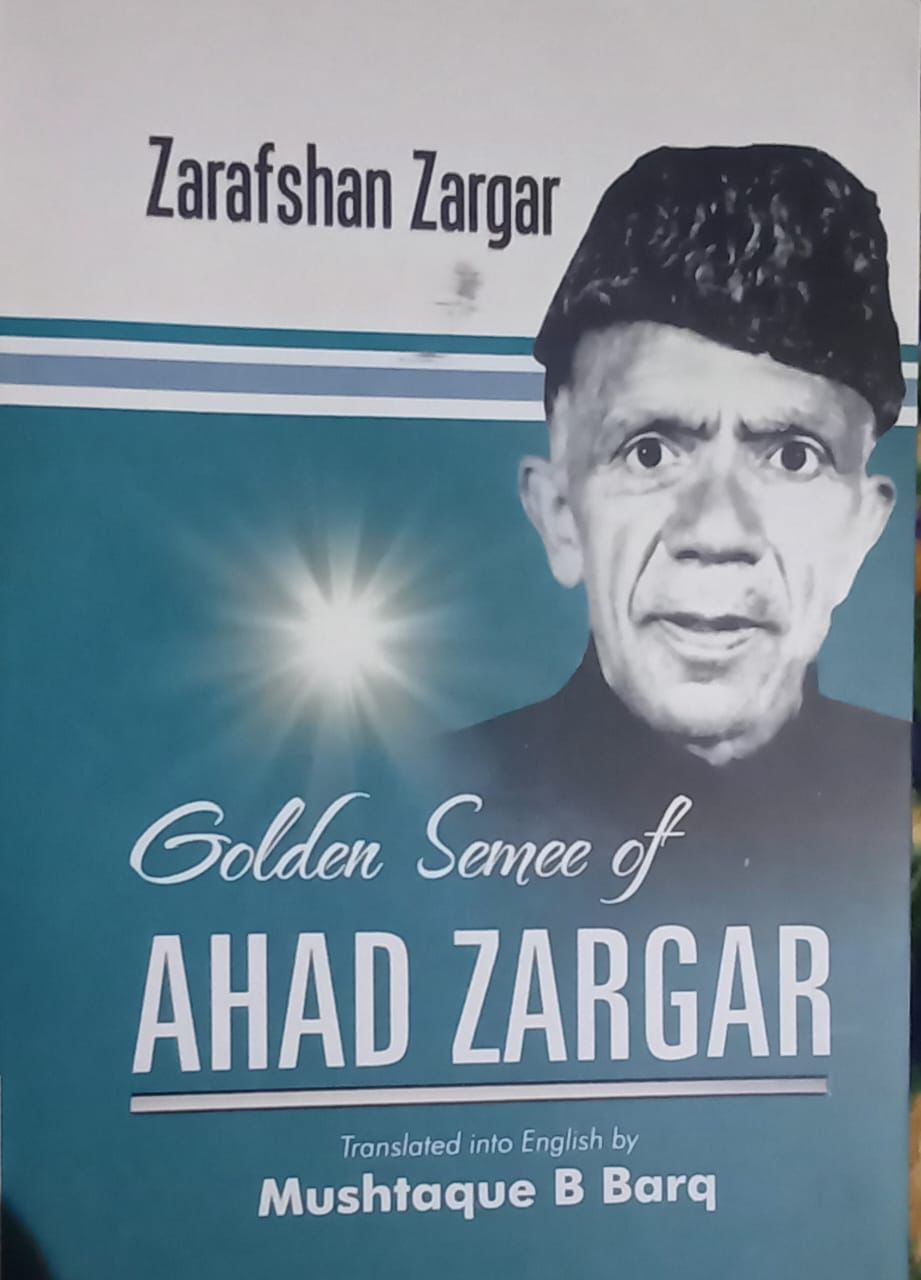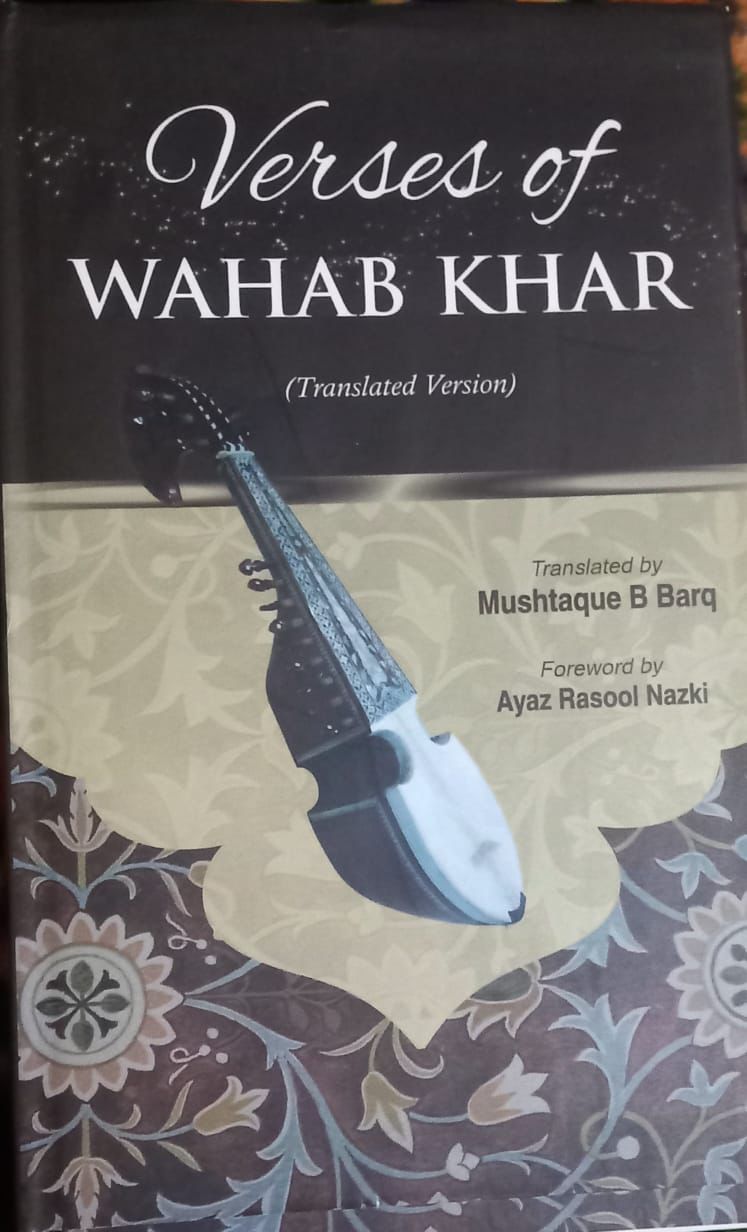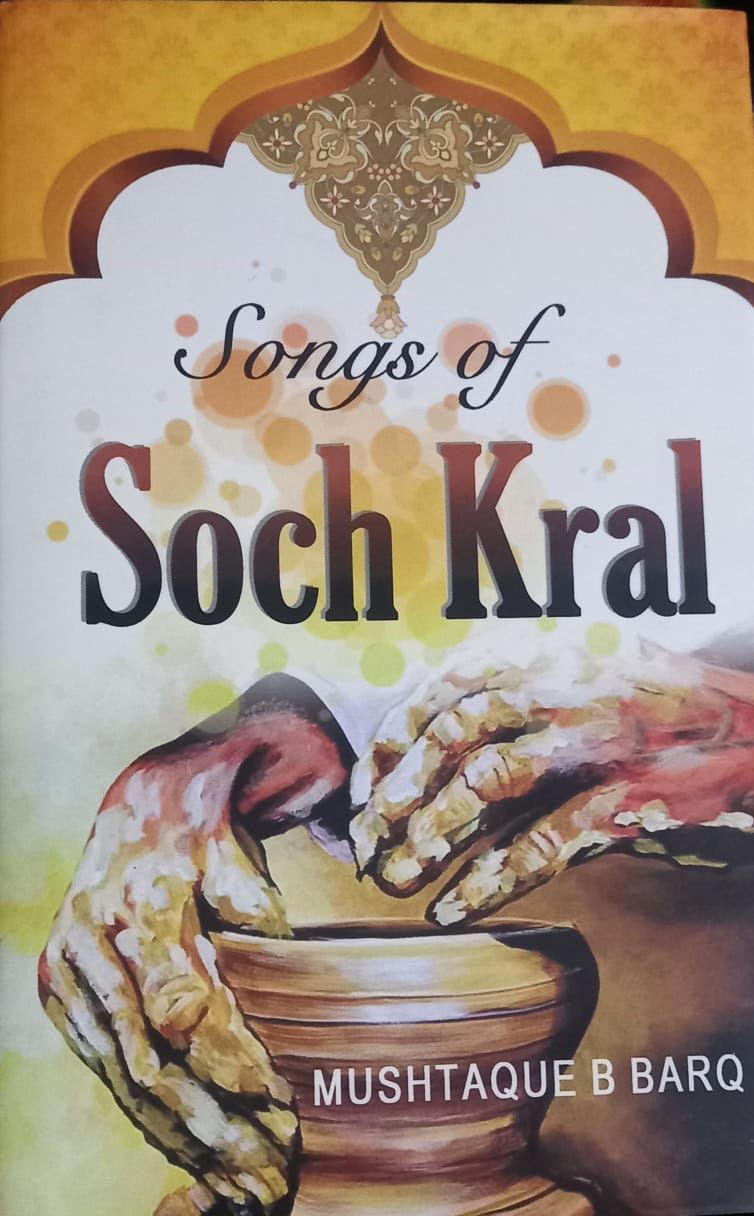Unlike Agha Shahid Ali, he doesn’t map lost lovers. Neither does he tell tales of life and times. He simply banks on Kashmir’s untapped treasure and makes it relevant for the global audience.
His admirers draw parallels between his translation odysseys with attempts made to contemporize South American literature back in the day. Such literary efforts, they argue, gave the world the likes of Gabriel García Márquez.
So, is Mushtaque Barq doing the same with Soch Kral?
To understand the translator’s vision and his mission to promote the Sufi literature, I met Barq on one cold day of November. His residence lies near the shrine of Habib-ul-Nowsheri, the mystic whose anthems fuel Sufi Mehfils of Kashmir.
Inside his home, Barq lives by the Sufi philosophy. His gentle nature and mannerism makes him a modest man whose thoughtful gaze strikes some familiarity in a room full of Kashmiri mystic literature. With a flickering fireplace warming up the room, Barq takes one to his seven-year-long linguistic journey.
“My devotion comes from the well of practical Sufism,” says Barq, sounding like a monk on a meditative path.

“I’ve been a Sufi, and I believe people who translate Sufi poetry without grasping its ether engage in mere sarcasm.”
His alchemical contributions might be an uncelebrated feat in Kashmir, but he finds solace in the praise garnered for his work in countries like America, Australia, and Spain. His translations are finally unleashing the Kashmiri literary spirit on the global level.

The feat is momentous because there has been a long debate in the literary pockets of the valley about the missing international recognition of the local literary legends.
While many Kashmiri wordsmiths excelled as English writers at an international level like Agha Shahid, the Kashmiri literary figures and their contributions have mostly remained confined to the valley.

But now, it seems, Barq has finally helped transcend Kashmiri poets and their poetry beyond Kashmir.
In his perspective, Sufi poetry is an integral part of Kashmir, and losing its essence would result in an obvious loss of identity.
“Sufism is deeply ingrained in the nerves and veins of Kashmiri people; it is impossible to separate them from it,” he affirms with an unwavering conviction.
Barq’s translations include the works of Wahab Khar, Soche Kral and Ahad Zargar. His work is not merely linguistic transcriptions but vessels carrying the soul-stirring melodies of Kashmir’s Sufi tradition into the broader opus of global understanding.
However, he positions himself as a speck of dust and attributes his essence to his master, who imparted the intricacies of translating the mystic words of Sufi poetry. “It was like a void that yearned to be filled,” he says. “I have spent sleepless nights deciphering the meaning of each letter.”
As a keeper of Sufi verses, Barq plays a vital role in shaping the very fabric of Kashmir’s identity, culture, and heritage. His commitment resonates across generations, safeguarding the quintessence of Sufi wisdom, a timeless gift to the soul of Kashmir.